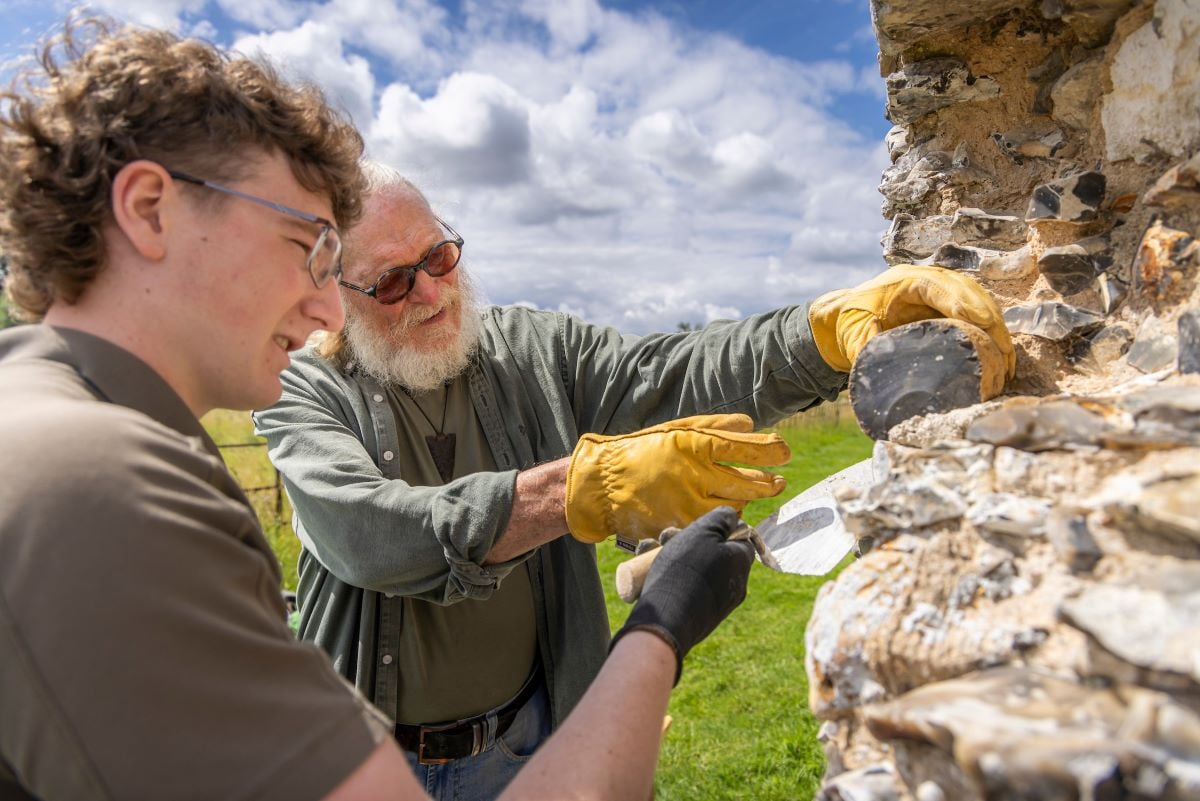
Around a third of East Anglia’s historic structures are made of flint, requiring skilled workers to safeguard their future
Photo: English Heritage
English Heritage launches £11m apprenticeship programme
The charity aims to train a new generation in vanishing heritage skills needed to preserve endangered historic properties, including flint-working, stone masonry and heritage brickwork.
English Heritage has announced an apprenticeship programme designed to transfer dying skills to the next generation.
The programme will include the establishment of a heritage skills centre in East Anglia, along with the creation of a “heritage crafts team”.
It is funded by an £11.2m donation from the Hamish Ogston Foundation as part of a wider £29m investment in heritage skills training in the UK and the Commonwealth, designed to support more than 3,300 conservation trainees.
READ MORE:
English Heritage’s programme will initially focus on saving the vanishing skill of flint-working, known as "flint knapping", which is essential to the preservation of many of East Anglia’s historic buildings and homes and is currently listed as endangered on the Heritage Crafts Red List.
The seven-year apprenticeship programme will also focus on teaching stone masonry and heritage brickwork to a new cohort of heritage conservationists.
“Heritage skills like flint knapping are the timeless threads that weave our past with our future,” said Robert Bargery, Heritage Project Director of the Hamish Ogston Foundation.
“The art of flint knapping is at a severe risk of extinction with only a handful of specialists left in the UK. This grant from the Hamish Ogston Foundation to English Heritage will help secure a new generation of specialists, so that we can combat this skills shortage and ensure that historic buildings at-risk can be preserved for years to come.”
‘A radical new approach’
Around a third of East Anglia’s historic structures are made of flint, requiring skilled workers to safeguard their future. The region has some of the country’s most significant conservation needs, as well as its most severe shortage of craft skills, the charity said.
The apprenticeship programme will include training led by some of the country’s remaining skilled flint workers. It will initially focus on preserving 34 flint castles and abbeys that are among the region’s most vulnerable historic buildings, including English Heritage properties in Bedfordshire, Cambridgeshire, Essex, Hertfordshire, Norfolk and Suffolk.
“Both the landscape of East Anglia and the lives of its people have historically been defined by flint, with skills apprenticeships passed down over generations,” said Gerard Lemos, Chair of English Heritage.
“That’s no longer happening, and both the buildings and the people have been the poorer for it.”
He said that the new apprenticeship programme “will provide a radical new approach to address the decline”.
As well as creating more than 50 apprenticeships, English Heritage will use its new centre to raise awareness of heritage skills as a career choice by inviting thousands of primary and secondary school children to take part in on-site Conservation in Action activities.
It will also be used to offer training to 450 construction students in further education.
“This investment is not just in the past – through saving English Heritage sites as well as homes and churches across the region – but in the future, by providing fulfilling careers for this, and subsequent generations,” Lemos said.
Join the Discussion
You must be logged in to post a comment.